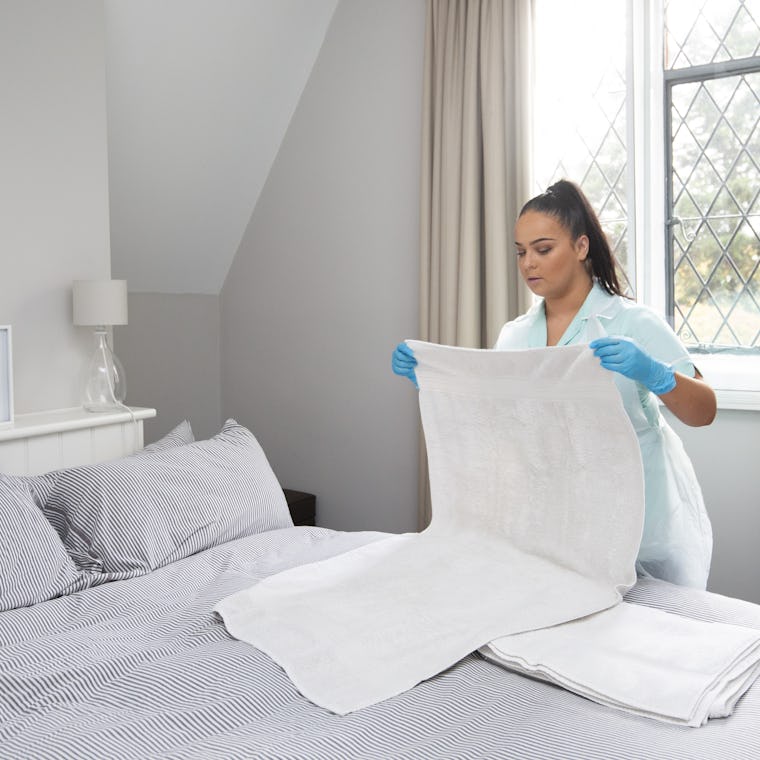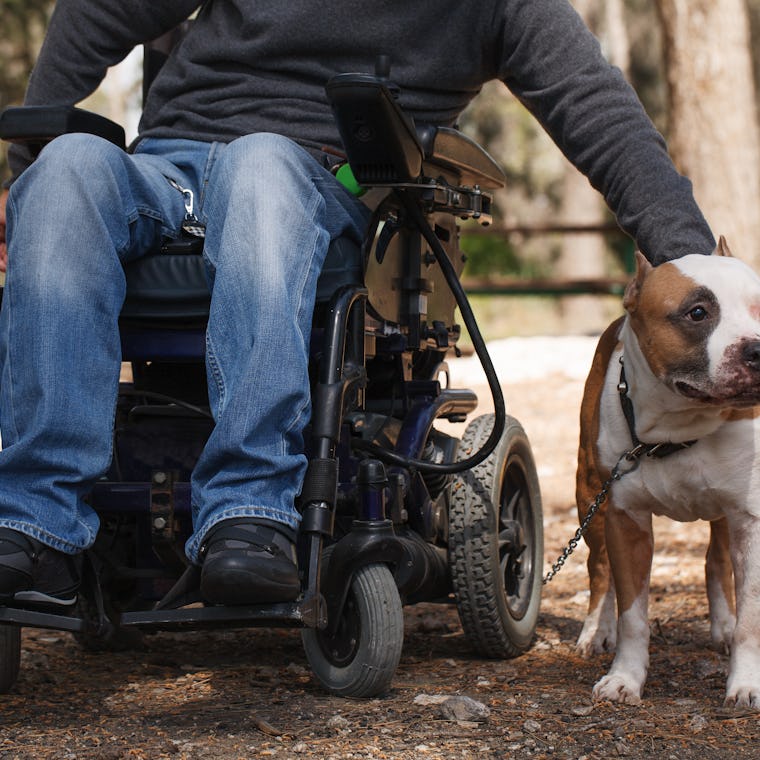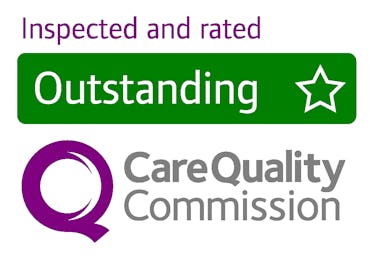What is Motor Neurone Disease?
There are four different forms of MND, which describe the different ways in which symptoms appear and are likely to affect a person. Each type is difficult to diagnose due to overlapping symptoms. Over time, the types of symptoms and the rate they progress becomes clearer which often means that diagnoses are revised. MND can affect adults of any age but is more likely to affect people over 50.
The four types of MND are:
The most common form of MND, presents as weakness and wasting in the limbs, muscle stiffness and cramps. Someone may notice they are tripping when walking or dropping things.
The second most common form of MND, it mainly affects the muscles of the face, throat and tongue. Early symptoms may include slurring of speech or difficulty swallowing.
A rare form of MND, early symptoms may show weakness or clumsiness in the hands.
Another rare form of MND, it causes mainly weakness and stiffness that usually begins in the lower limbs, although many people experience additional problems with their speech and other symptoms. PLS is usually not life-shortening, as it progresses very slowly.
Kennedy’s disease is not a form of MND but has similar symptoms. It is a rare condition affecting the motor neurons, with increasing weakness and wasting of the muscles. Unlike MND, Kennedy’s disease also causes hormonal changes. Due to their similarities, MND and Kennedy’s disease are sometimes confused at diagnosis.
MND Symptoms and Challenges
Symptoms of motor neurone disease come on gradually and may not be obvious at first. How they present and progress may be different, depending on the MND type. However, symptoms usually start on one side of the body before spreading.
Usually, the first things people notice are:
- Weakness in hands and grip
- Slurred speech
- Cramps and muscle twitching
- Weakness in ankles and legs
- Weakness in shoulders, making lifting difficult
- Weight and muscle loss, particularly in the arms and leg muscles
- Difficulty stopping crying or laughing in inappropriate situations
Later-stage MND symptoms include:
- Extreme weakness with little or no movement
- Severe difficulty talking, breathing and swallowing
- Some people with MND develop a type of dementia causing personality changes
- Joint pain
The progressive symptoms of MND make it a difficult condition to cope with. If you or a loved one has been diagnosed with MND you know only too well how devastating the condition can be.
The severity of symptoms means that professional home care is commonly sought as a way to assist the person and their family with everyday challenges. Practical, physical, and emotional support from a home care worker can be invaluable for families to cope with the ever-changing condition. Live-in care is a great way to remain in the comfort of your own home, surrounded by family and loved ones, rather than moving into residential care during the later stages of the condition.
Motor neurone disease care
While there is currently no cure available for MND there are treatments that can help reduce symptoms. Individuals with MND will usually require assistance from different specialists, such as:
- GPs and nurses
- Neurologists
- Occupational therapists
- Physiotherapists
- Speech pathologists
- Psychologists
- Social workers
- Home care professionals

With such wide-ranging impacts on a person’s ability to be independent, a multidisciplinary care team will be called on for support and therapies, and personalised care plans are put in place.
Professional home care can be a vital element of this approach. MND care with Trinity Homecare ensures that all healthcare professionals involved in your care collaborate together through the development and constant revision of a personal care plan.
Often specialists from the multidisciplinary health care team will have sporadic involvement whereas home care support, from a provider like Trinity Homecare, is delivered every day, sometimes round-the-clock. We provide consistency of care, practical and emotional support, which allows the carers to foster and develop close relationships with the person and their family.
Types of home care support for MND
At Trinity Homecare our extensive experience of supporting families with MND gives us the knowledge and insights to be able to offer different home care options for different stages of the MND journey.
No matter what type of home care you receive, Trinity carers can help with a huge range of practical, physical, and emotional support needs:

Physical support
Such as encouragement and support with regular physiotherapy routines, assistance to take medications in the right dose and at the right time, or other symptom management. Personal support with bathing, washing and eating, help with mobility and ensuring the person remains comfortable at all times.
Practical support
From preparing nutritious meals that are easy to consume and reaching the daily targets for nutrition and calorie goals. Housework such as cleaning, laundry or walking the dog or even collecting prescriptions and grocery shopping is provided. Carers can provide guidance about options like feeding and breathing tubes as the disease progresses.


Emotional and mental health support
For both the person and their family. It’s a tough journey and the compassionate and dignified care given by a Trinity carer extends to companionship and mental and emotional support. Carers can help the whole family understand the complexities of the condition. Strong bonds are often developed and most of our clients comment that their carer becomes like a trusted friend or one of the family.
Flexible MND care with Trinity
Different stages of the condition require different types of support. In the early stages, a family may feel that visiting care is enough support or may require respite care for times when family caregivers have a much-needed break. Later on, as the illness progresses, live-in care providing round-the-clock support can be a great option as people require care throughout the night.
Here are just some of the care options we offer:
Visiting care can be as little as 30 minutes a week or up to several visits a day, depending on your needs. Visiting care is perfect for early-stage MND when families may only need support with morning and evening routines due to increasing mobility issues.
Respite care is a temporary form of care that can plug the gap when your existing carer has to take time off. Our flexible approach means that we can usually provide respite care within 24 hours in the case of a carer becoming sick or another emergency.
Live-in care means that a carer will come to live in your home and provide round-the-clock support. This is a fantastic option for mid and late-stage MND. There are different types of overnight care available – sleeping night care is when the carer will sleep at your home during the night but can be woken up for unforeseen or occasional needs. Often, later on, waking night care may be needed which involves two carers working on a shift basis – one working during the day and one working at night – to provide round-the-clock care and support.
Palliative care is provided to people with complex health conditions or those with a life-limiting prognosis. Carers offer emotional support as well as practical care such as assistance with personal care, household tasks, and medication. Emphasis is put on making sure the person is comfortable and emotional needs are supported.
Support groups and community resources
There is no need to struggle alone with MND. Support groups of other MND families and community resources in your area can be incredibly helpful as a way of gaining knowledge, sharing experiences, and supporting the whole family.
Resources to explore include:
- Motor Neurone Disease Association has a raft of useful information and resources such as benefits advice and financial support grants, a helpline, and an online forum
- Speak with your GP to find out what local services are available in your area
- The Brain Charity offers practical support to help you understand and come to terms with a new diagnosis, they can assist with applying for aid for home adaptations and also offer legal advice
Get in touch today
To find out how you or a loved one can live well at home with MND get in touch with us today. Our expert and friendly care team is on hand to take your call 7 days a week, from 7.30am to 5.30pm.
We offer a free, no-obligation enquiry service, including a free needs assessment conducted in your home with our professional team. Simply call us on 0207 183 4884 or complete our online enquiry form and we will get in touch.

















